
Revelation 2:1-7 Part 2 Bible Teaching
Shawn's teaching on Revelation 2:1-7 highlights Ephesus' praise for resisting false apostles but critiques their loss of "first love." Emphasizes agape love over doctrine.

Shawn's teaching on Revelation 2:1-7 highlights Ephesus' praise for resisting false apostles but critiques their loss of "first love." Emphasizes agape love over doctrine.
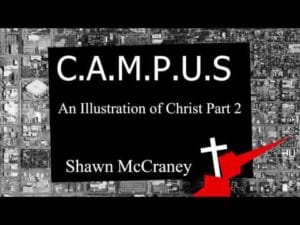
Shawn's teaching emphasizes Jesus' role in overcoming sin and death, faith as the path to becoming God's children, and spiritual growth through the Word and Spirit, not rituals.

Shawn's teaching highlights Jesus as the divine Son of God, emphasizing spiritual growth through faith, not rituals. Believers become God's children, sharing divine attributes, focusing on internalizing God's Word for transformation and spiritual maturity.

Shawn's teaching highlights Christmas's shift from religious to secular, emphasizes Jesus as mediator and divine communication, and underscores His dual nature and role in salvation.

Script currently unavailable.
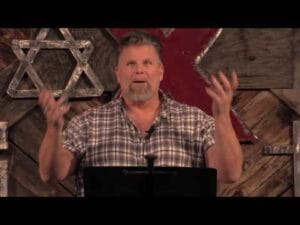
The teaching emphasizes salvation through faith and grace in Jesus, not adherence to Jewish laws like circumcision. It highlights unity, internal faith, and liberation from the Law.
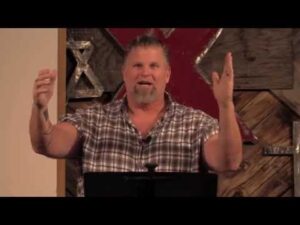
Shawn's teaching on Revelation 2:1-7 highlights Ephesus's commendable labor and discernment but criticizes their loss of first love, urging repentance and return to devotion.

Shawn emphasizes genuine prayer and fasting, critiques insincere practices, highlights early church debates on Jewish customs, and stresses spiritual transformation over rituals.

Jesus instructs John to document past, present, and future events in Revelation. Symbols like seven stars and lampstands represent church leaders and churches. Emphasizes grace, works, and steadfast faith.
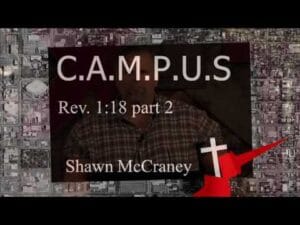
Jesus holds authority over death and hades, offering hope for universal reconciliation. Early Christians favored corrective punishment over eternal torment. Shawn, a Full Preterist, believes Jesus returned in 70 AD, leading to spiritual restoration and the end of spiritual death.

The teaching summary discusses the role of apostles and prophets in church governance, questioning modern claims of apostolic authority, emphasizing spiritual unity, and prioritizing love over structured institutions.

Communion at CAMPUS is participant-driven, not leadership-emphasized, seen as a memorial. Paul and Barnabas redirect idol worship to God. Shawn teaches against idolatry, emphasizing God's eternal nature. Paul highlights God's provision through nature, urging faith despite tribulations.
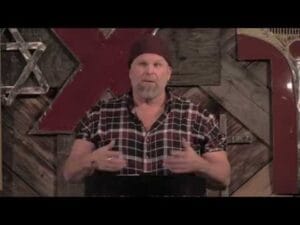
Jesus' death and resurrection secure eternal life for believers. He holds authority over life and death, symbolized by "keys of Hades and death," emphasizing His eternal dominion.
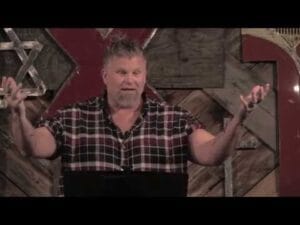
Shawn's teaching on Revelation 1:13-18 highlights Jesus' divine attributes, linking Old Testament imagery to His exalted state, emphasizing His role as King, High Priest, and divine judge.
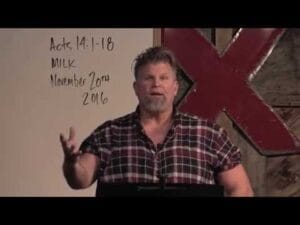
Paul and Barnabas preached powerfully, faced opposition, and performed miracles. Shawn teaches on God's message confirmation, spiritual fruit, and purposeful division.
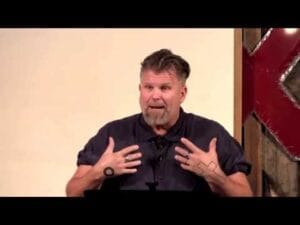
Shawn reevaluates John's exile to Patmos, suggesting it was for missionary work, not persecution. He challenges traditional dating of Revelation, emphasizing internal biblical evidence over early church traditions, and proposes an early authorship date.
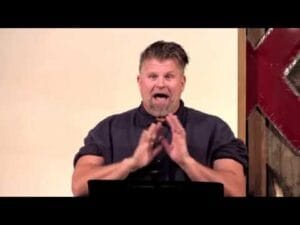
Paul's message in Acts 13 highlights justification through faith in Jesus, contrasting the Law of Moses. Despite Jewish opposition, Gentiles embraced it, expanding the Gospel.
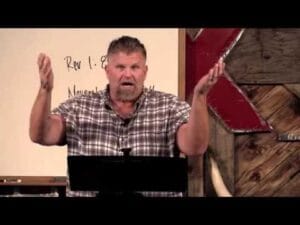
Shawn's teaching explores "Alpha and Omega" as symbols of God's eternal nature, Jesus' divine authority, and the transition from the Old to New Covenant, emphasizing a preterist view.

Paul's teaching highlights Jesus as the Savior, fulfilling God's promise to Israel. Through Jesus' resurrection, salvation extends to all, transcending the Law of Moses.
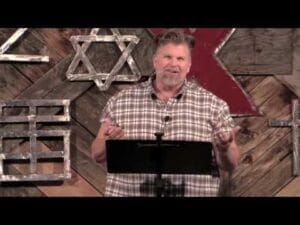
Paul and Barnabas's encounter with Sergius Paulus led to belief after Elymas's blinding. Paul preached Jesus as Savior in Antioch, highlighting Israel's history and David's faith.